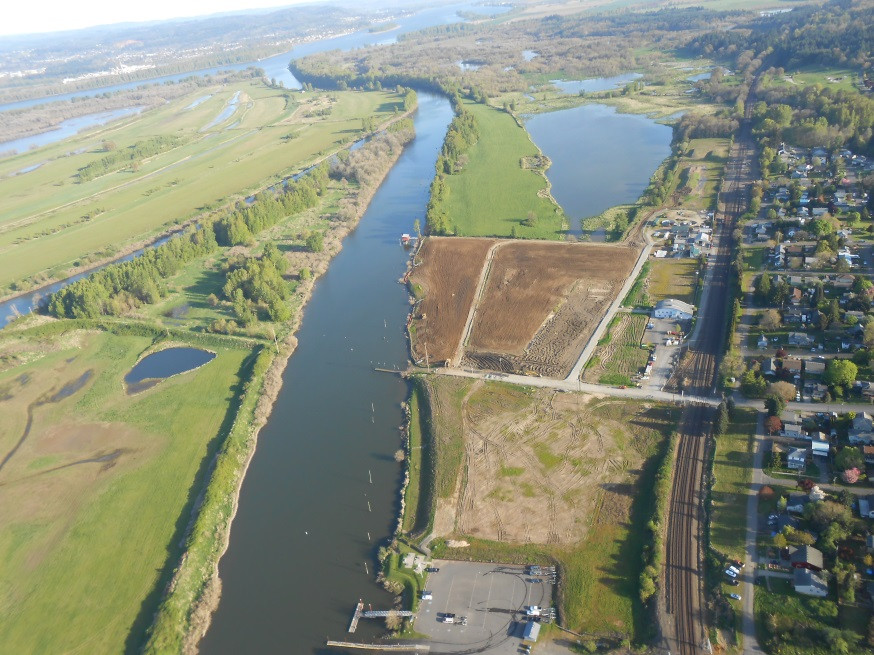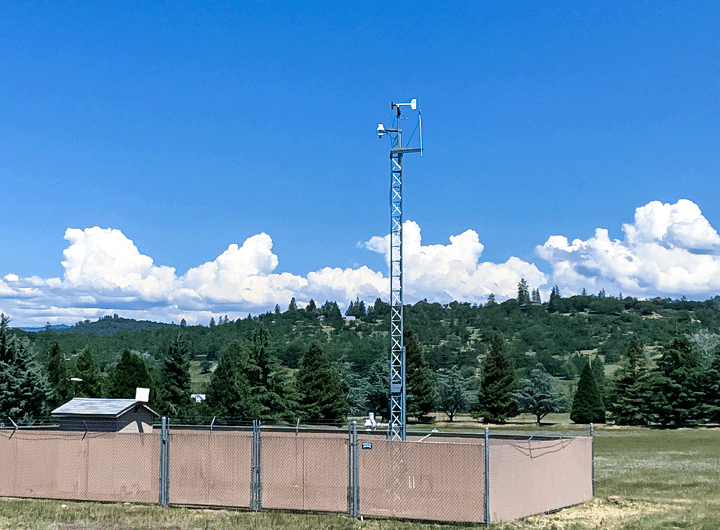Funding
State and Federal Grant Funding Opportunities September 2024

The grant opportunities available this fall are robust and include more than $374 million in federal dollars, with the annual EPA Brownfields program representing the bulk of that funding. In Washington state, more than $33 million is available through three programs, with more funding represented by the Water Quality Combined Funding Program. Oregon funding opportunities represent significant local investments for water conservation, transportation, and recreation programs. Sharpen your pencils and get ready to apply!
Federal Brownfields Assessment and Cleanup Grants Application Period Opens in September
EPA will provide millions of dollars to clean up polluted sites.
In September, the U.S. Environmental Protection Agency will open the application period for its Brownfields Program funding. EPA anticipates awarding more than $230 million to applicants in three categories:
- $117 million total for Assessment grants with maximum awards of between $500,000 and $2 million, depending on grant type.
- $15 million for the Revolving Loan Fund with a maximum award of $1 million.
- $100 million for Cleanup grants with maximum awards of $500,000, $2 million, and $4 million, depending on the program.
Eligible applicants include local governments such as counties and cities, federally recognized Indian tribes, nonprofit organizations, special districts, councils of governments, community development agencies, and others. Applicants that have already received Brownfields program funding may be eligible for additional funding. Eligible activities will include planning for revitalization and reuse as well as implementing a project. Cost-sharing, or matching, requirements vary by program; last year’s Cleanup program grants did not require matching funds. To help prospective applicants get started, EPA has already posted information on the Eligibility page. The full funding announcement, guidance, webinars, and other resources will be available at the main Brownfields Current and Upcoming Funding Opportunities page in September. It’s not too early to start exploring the resources linked here!
$20 Million in Federal Funding to Improve Airport Contract Tower Operations
Program aims to improve aging infrastructure at small airport-owned towers.
The Federal Aviation Agency will provide $20 million to support airport-owned air traffic control towers (ACTCs) that participate in the FAA’s Contract Tower Program. Airport sponsors approved in the FAA Contract Tower Program are eligible to apply. Eligible projects include those that (1) improve, replace, or relocate nonapproach control towers; (2) acquire and install communications and related equipment for airport-owned ACTCs; and (3) construct remote FAA-certified towers. There is no cost-sharing or matching requirement. Applications are due by September 18, 2024. To learn more, visit the FAA Contract Tower Competitive Grant Program page.
$100 Million in Federal Grants to Remove Barriers to Affordable Housing
Program supports communities to produce and preserve affordable housing.
The U.S. Department of Housing and Urban Development will make up to $100 million available to eligible applicants to actively identify and remove barriers to affordable housing in their communities. Eligible applicants include state, county, and local governments as well as multijurisdictional entities. Eligible projects include developing, evaluating, and implementing housing policy plans; improving housing strategies; and facilitating affordable housing production and preservation. Applications will receive priority consideration if proposed projects may address acute needs for low-income residents and equitably expand affordable housing to deconcentrate it and give residents access to well-resourced areas. Cost sharing (or matching) is not required, but applicants that show they have leveraged additional financial support will receive additional points. Applications are due on October 15, 2024. To learn more, visit the Pathways to Removing Obstacles to Housing program website.
$24.5 Million for Tribal Transportation Safety Planning
Program aims to reduce deaths and serious injuries due to crashes in tribal areas.
The U.S. Department of Transportation is providing more than $24.5 million to federally recognized tribes to develop strategies, activities, and projects on public roads to correct or improve a hazard or address a highway safety problem. Some eligible project types include the addition of features such as roundabouts and rumble strips; safety improvements for pedestrians, cyclists, or persons with disabilities; traffic-calming features; installation or replacement of signage; safety planning; collecting safety data; and many others. For projects on facilities not owned by a tribe, a letter of support from the facility owner is required. No match is required; however, if the number of qualified applications exceeds the available funding, then applicants that have leveraged funds will receive priority consideration. Applications will be accepted October 1, 2024, through January 15, 2025. To learn more, visit the Tribal Transportation Program Safety Fund website.
More Than $14 Million Available for Energy Efficiency Retrofits in Washington State
Grant funds can be used for retrofitting existing facilities and related projects to save energy.
The Washington State Department of Commerce is providing approximately $14.5 million in funding for retrofitting existing facilities and related projects that achieve energy and operational cost savings. Eligible applicants include local and state government agencies, federally recognized tribal governments, and public higher education institutions and school districts. Eligible activities include, but are not limited to, upgrading HVAC and other mechanical systems; replacing lighting, insulation, and windows; purchasing and installing heat pumps or geothermal systems; or energy-efficiency measures across a campus or district. Projects for retrofitting publicly owned buildings that are pursuing Tier 1 compliance with Washington’s Clean Buildings Performance Standard will receive priority consideration. Priority will also be given to applicants with a developed community engagement plan for gauging community needs and impacts related to the proposed project. At least 20 percent of funds will be awarded to applicants with eligible projects in small cities or towns of 5,000 or fewer residents. Applicants with projects in overburdened communities will be eligible for reduced cost-sharing, or matching, requirements. Applications are due September 25, 2024. To learn more, visit the Energy Efficiency Grant Solicitation EE-024 program page.
Up to $9.6 Million to Reduce Methane from Landfills in Washington
Program supports cutting methane levels in municipal landfills by 2050.
The Washington State Department of Ecology is making $9.6 million available to local government and tribal owners and operators of municipal solid waste landfills for projects that lead to the reduction of methane emissions. Projects can include planning (e.g., engineering and design, preparation and site surveys, permits and fees); monitoring; purchasing, installing, or repairing landfill gas collection and control systems or components; as well as projects that maximize landfill gas collection above the minimum methane emissions requirements in the Revised Code of Washington 70A.540. Award amounts vary according to project type. Eligible applicants will have completed initial waste in place reporting as required under Washington Administrative Code 173-408. Applications are due October 1, 2024. To learn more, visit the Landfill Methane Emissions Reduction Grants website.
$10 Million to Improve Air Quality in Washington
Program focuses on improvements in 16 overburdened communities.
The Washington State Department of Ecology will make $10 million available for projects to reduce air pollution in 16 areas in the state that have been identified as overburdened and highly impacted by air pollution. Eligible applicants include local and tribal governments and community-based organizations in the 16 affected areas. Eligible projects include community engagement and planning, designing, or implementing projects to reduce emissions. Applications will be due October 24, 2024. To learn more, visit the Improving Air Quality in Overburdened Communities program page.
Washington Water Quality Combined Funding Program Open
Ecology provides one application for seven programs.
The Washington State Department of Ecology’s Water Quality Combined Funding Program is open. This megaprogram comprises seven individual programs:
- Washington State Water Pollution Control Revolving Fund Program (which includes funding for emerging contaminants)
- Stormwater Financial Assistance Program
- Centennial Clean Water Program
- Clean Water Act Section 319 Nonpoint Source Grant Program
- Sewer Overflow and Stormwater Reuse Municipal Grants Program
- Stormwater Community-Based Public-Private Partnership Program
- Municipal Stormwater Grants of Regional or Statewide Significance Program
Eligible applicants—including local and tribal governments; ports; sewer, conservation, and irrigation districts; local health jurisdictions; and quasi-municipal corporations—can apply for funding using a single application. Eligible project categories include wastewater, stormwater, and sewer facilities; stormwater activities such as monitoring and planning; and nonpoint source activities such as planning, outreach, monitoring, land acquisition, implementing best practices, and others. Maximum funding limits vary by program. Matching requirements vary by funding source; some funds may require up to a 25 percent match. Applications are due October 15, 2024. For more information or to view the application guidance, visit the Water Quality Combined Funding Program page.
Funding Available to Evaluate Water Reuse, Conservation, and Storage in Oregon
Approximately $500,000 per applicant to help communities evaluate projects.
The Oregon Water Resources Department will provide up to $500,000 per applicant to evaluate the feasibility of projects to reuse, conserve, or store water. Local governments, tribes, and legally responsible entities are eligible to apply. Examples of eligible projects include studies to assess the feasibility of measures including irrigation system efficiencies and water reuse, projects to reduce water loss in a municipal system, or evaluations of aboveground or belowground storage. Match funds may be composed of in-kind and cash match funds and must be, at a minimum, a dollar-for-dollar match to grant funds. Specific application dates have not yet been set, but applications will be due in the fall of 2024. To learn more, visit the Feasibility Study Grants page.
Support for Enhanced Mobility for Seniors and People with Disabilities in Oregon
Program aims to fill the gaps for transportation services.
The Oregon Department of Transportation administers the annual Federal Transit Administration program to support public transportation options for seniors and individuals with disabilities. In 2023, a total of $24.5 million, in awards ranging from approximately $100,000 to $7.4 million, was awarded to applicants in Oregon. Eligible projects include vehicle purchases, ramps and lifts, mobility management programs, passenger shelters, preventive maintenance, purchased services, call centers, and equipment to fill gaps experienced by seniors and people with disabilities. Projects must appear in a local transportation plan. Eligible applicants include tribes, counties, cities, councils of government, and mass transit and transportation service districts in Oregon. The required match for operating projects for small urban agencies is 50 percent; for all other projects the match is 20 percent. Federal funds from other programs may be used as a match. Applications are due November 20, 2024. To learn more, visit the Oregon DOT Public Transportation Funding Opportunities page and view the 5310 Enhanced Mobility of Seniors and Individuals with Disabilities listing.
Available this Fall: Funding to Improve Oregon County Parks that Offer Camping
Program supports county-owned and -operated parks.
The Oregon Parks and Recreation Department provides funding annually to improve county-owned and -operated parks that offer camping. In 2021, a total of approximately $862,800 in matching funds was awarded for projects that ranged from $57,000 to $500,000. Eligible applicants include counties that own or have a long-term lease on a park property, counties that own properties owned by other public entities with interagency agreements, and counties that have fewer than 30,000 residents (small counties) and no park system. Eligible projects include planning for future development of camping facilities, acquiring property for public camping, developing new or expanding campgrounds, developing support systems and facilities, and rehabilitating or remodeling grounds and structures. Recreation must be the primary function at the proposed project site. Required matching funds are 25 percent for small counties and 50 percent for all other applicants. Applications are due October 1, 2024. To learn more, visit the County Opportunity Grant Program page.
Closing at the End of September: Oregon Childcare Infrastructure Fund
Program supports improvements to facilities.
Business Oregon is providing up to $2 million in funding per applicant for improvements to childcare facilities in Oregon and up to $75,000 for related planning activities. Eligible applicants include childcare providers certified or registered in Oregon, childcare centers, nonprofit organizations that operate childcare facilities, federally recognized tribes, school districts, municipalities, and others. Eligible projects include construction of new childcare facilities, renovation or repair of facilities for childcare, acquisition of property for a childcare facility, and planning activities (including a feasibility study, site investigation, or environmental action) related to a potential childcare facility project. Projects that include private dwellings are not eligible for this funding. School districts must provide a 100% match for program funding. Applications are due at 5 p.m. on September 30, 2024. To learn more, visit the Child Care Infrastructure Program web page.
Contact
Contact Seth for help with grant application and strategy.




